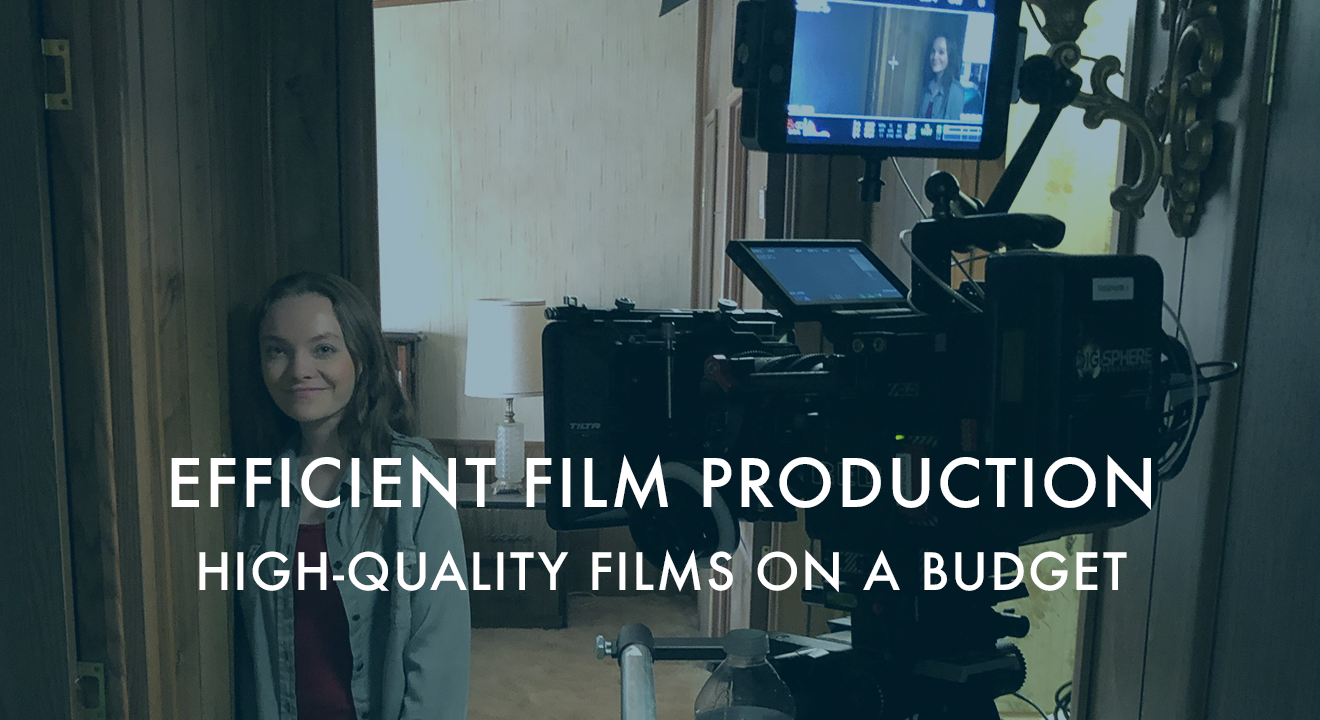A Page from Hollywood History
When I think of efficient film production, Hollywood in the early 1920s comes to mind. I recently watched the docudrama series “TITANS: The Rise of Hollywood” on Roku and was amazed by how fluid motion picture production was back then. Studios could make up to 30 films annually, and their business model was vertically integrated, from production to exhibition. This makes me wonder if there is historical guidance for indie filmmakers in building business models.
For the last 25 years, I’ve focused on making films cost-effectively and designed plans to maximize efficiency. The more movies I produce, the more money I make as a filmmaker. Therefore, my film production must be efficient, and my cost per film needs to be low. This requires specific criteria for greenlighting projects.
Creating a good indie film is challenging, and making micro-budget films has become an art form. We must balance good storytelling with financial and logistical constraints. With the increasing number of films being made today, filmmakers face tremendous pressure to think outside the box. However, the demand for content by streaming platforms and the big studios’ cost-cutting measures could benefit indie filmmakers like us.
In today’s post, I’ll discuss incorporating efficient film production into your creative process and explore ways to create more while spending less. Producing a feature film is daunting, let alone multiple films yearly, but it’s feasible with a basic understanding of:
Fewer locations + Fewer actors = Lower budget
This concept might seem simplistic, but your budding film studio needs to produce movies quickly and inexpensively while maintaining good storytelling in non-star-driven genres to thrive.
Efficient Pre-Production Film Planning: Laying the Groundwork
Scripting: A good script is crucial. The low budget will amplify your film’s weaknesses if the script is weak. A strong story and script give you a fighting chance with audiences, even with low-budget execution. Focus on a compelling narrative that can be told within a limited timeframe. Write a tight script with minimal locations and characters, ensuring every scene advances the plot or develops characters.
Casting: Opt for a small, versatile cast you can afford. Actors who quickly adapt to different roles and situations are invaluable. Their ability to deliver strong performances with minimal direction significantly contributes to efficient film production. Fewer actors simplify logistics, from scheduling rehearsals to managing on-set dynamics, saving money.
Location Scouting: Choose locations that require minimal set changes and can serve multiple purposes within the film. Location consolidation reduces the time and effort needed for changes, saving budget. Ensure these locations are easily accessible and require minimal permits to avoid delays.
Plan for Your Shots: Whether through basic sketches or detailed storyboards, knowing what you need to shoot at each location and each day is essential. These prep tools provide a clear visual guide for each scene, helping the director and crew understand what is needed and minimizing on-set time.
Film Production Efficiency: Producing with Precision
Building a Skilled and Small Crew: Every crew member must be highly skilled and capable of multitasking. A small, talented crew ensures smooth production without unnecessary complications. Clearly defined roles prevent overlap and confusion, streamlining the process. A simpler production can also make it easier to negotiate lower rates.
Smaller Gear, Smaller Headaches: Using lightweight, versatile equipment is crucial for efficient film production. This gear is easier to set up and move, allowing quicker scene transitions. Invest in high-quality cameras and sound equipment to maintain a professional standard, even with a rapid production schedule.
A Tight Shooting Schedule: A meticulously planned shooting schedule maximizes efficiency. Block shooting reduces the need for constant set changes. Conducting rehearsals before filming begins ensures actors and crew are prepared, reducing the number of takes needed.
Post-Production: Bringing Efficient Film Creation Together
Streamlined Editing: Plan the shoot with the edit in mind to minimize the footage that needs to be sorted. A streamlined workflow and familiar editing software help the editor work quickly and effectively. Excellent media management while shooting is crucial—backup files across multiple drives and organize the media by scenes and days.
Sound Design and Music Matter: Compelling sound design and carefully chosen music can produce Hollywood-level results even with a limited budget. Use royalty-free music or commission a simple score to enhance the film without complex licensing issues.
Subtle Visual Effects: Favor practical effects over digital ones for quicker implementation and less post-production time. When using digital effects, ensure they are subtle and well-integrated to enhance production value.
General Tips for Efficient Film Production
Flexibility and Adaptability: Plans will change during film production. Be ready to adapt quickly to unforeseen challenges. Efficient film production often requires on-the-spot problem-solving and flexibility.
Creative Problem Solving: Use innovative solutions to overcome budget and time constraints. Be flexible in your plans, and don’t hesitate to cut scenes or dialogue if things aren’t working on location.
Check out our previous post on Filmmaking on a Budget.
Networking: Build a reliable network of actors, crew members, and post-production professionals. A strong network can provide support and resources, contributing to efficient film production.
Conclusion
Indie filmmaking today shares many similarities with Hollywood nearly 100 years ago. Studios like Fox, Universal, Paramount, MGM, and United Artists were once “indie”. They figured out how to control their manufacturing, distribution, and sales. As an indie filmmaker, creating a method for efficient and affordable film production can help you carve out a market and succeed in making films for a living.
Check out my books on micro-budget filmmaking for tips on going from dreamer to doer and making progress in your film career. Don’t wait for the right opportunity or ask for permission—try to do the thing like hell.
That’s all for today. Enjoy your week, and peace out!
-Kelly




